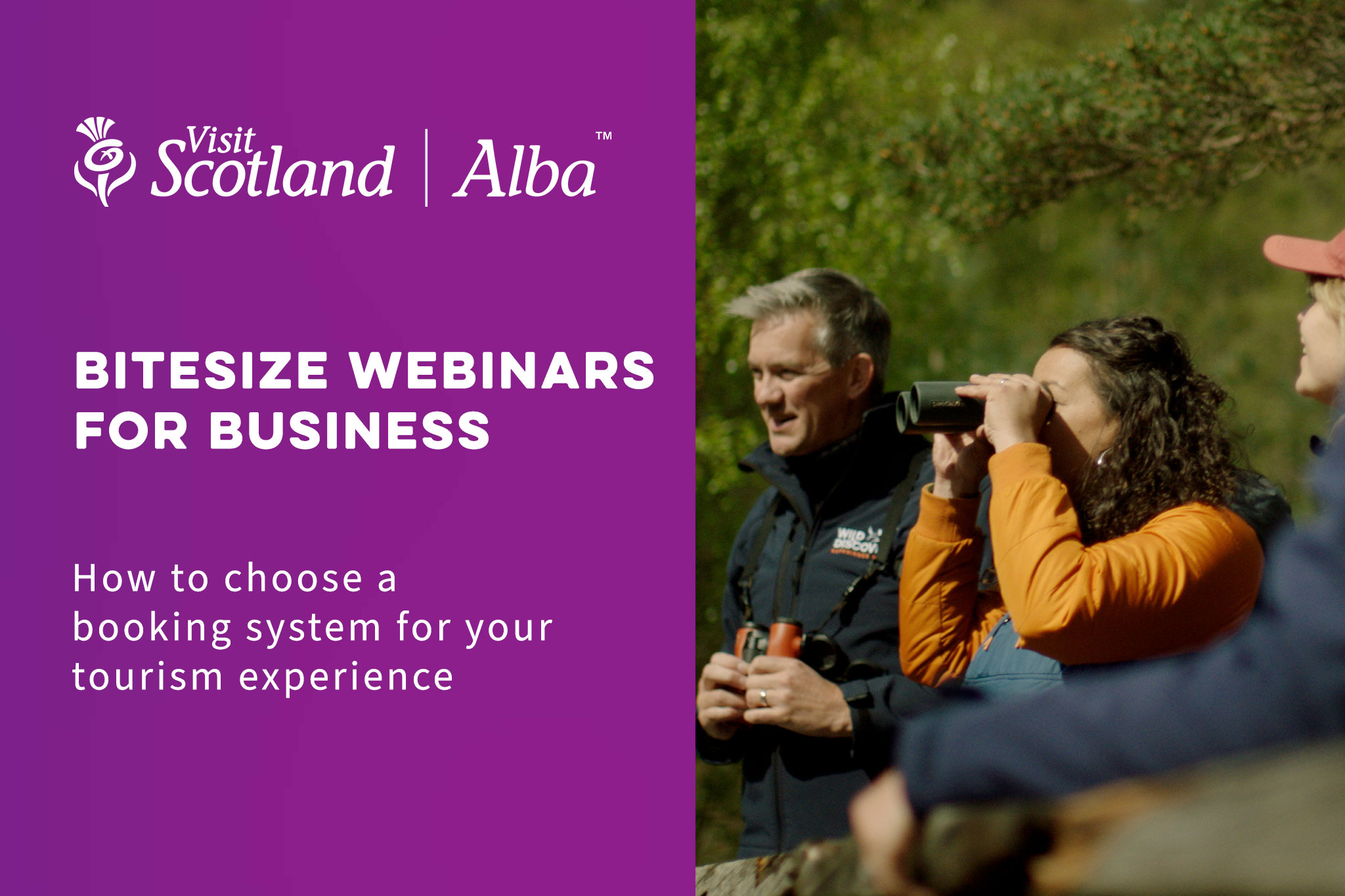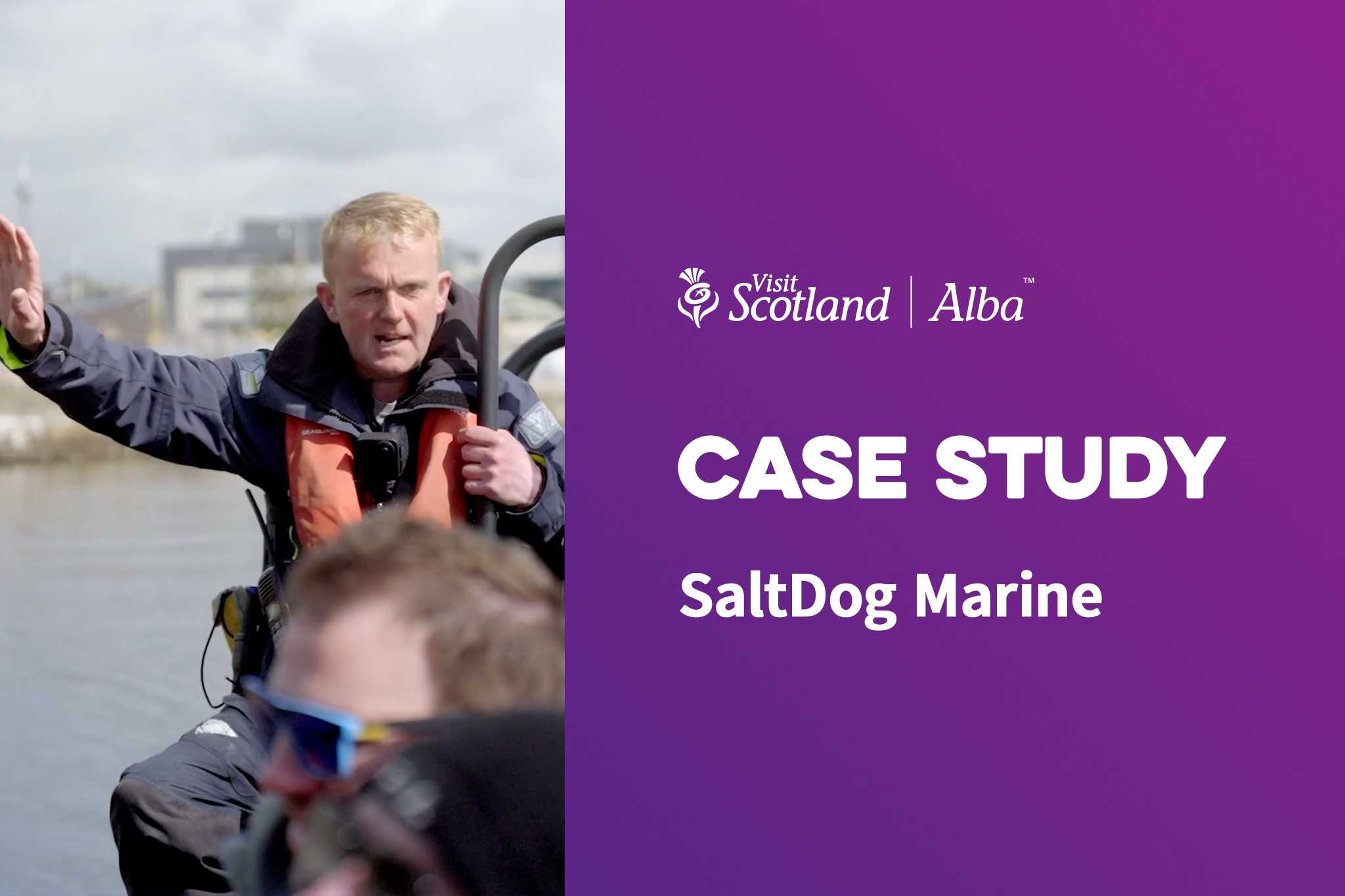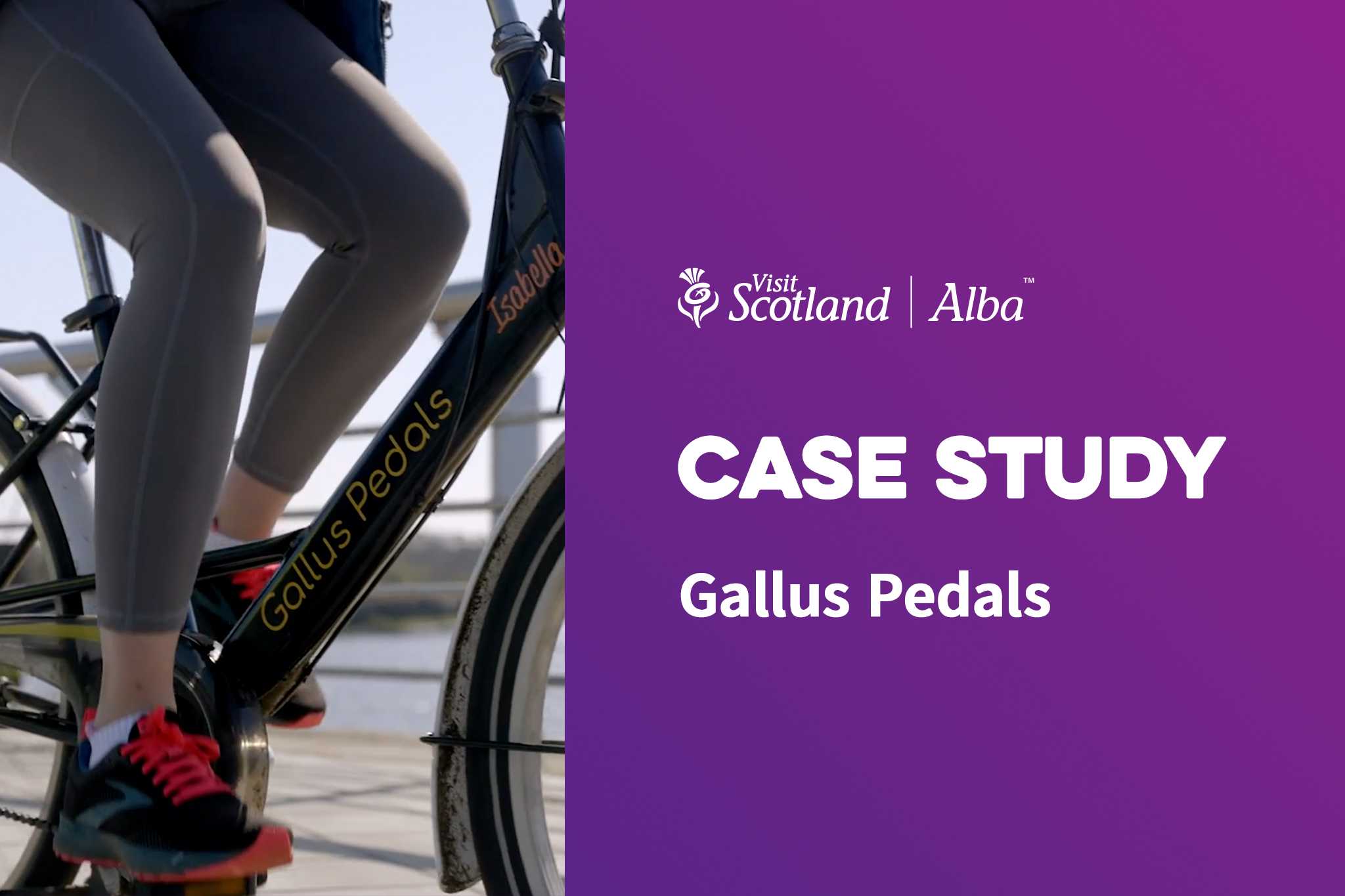Choosing an online booking system for your business
An online booking system is software that lets you take bookings and payments from customers online.
By offering features and functionality such as automated bookings, an online booking system can help improve the efficiency of your business and support you during growth.
With customers looking to book their tourism experiences online, choosing the best system for their needs and yours is vital.
Find out more about the benefits of using an online booking system, the costs involved and other factors you should consider when choosing a system provider.
The benefits of an online booking system
Depending on the system you choose there are a range of benefits that an online booking system can deliver.
Improved customer experience
An online booking system can help to:
- provide quicker on-site processing of customers
- control customer numbers and customer flow
- increase clarity and consistency of booking terms and conditions
Greater efficiency
Save time and money by:
- managing bookings smoothly across different platforms
- less time spent on admin tasks
- no need to duplicate availability and pricing across multiple platforms
- quicker updating of products and pricing
Use of data and insights
Get easier access to data that allows for:
- evaluation of your busy and quiet times (assists staffing)
- keeping in touch with customers post-visit
- improved financial management
The cost of an online booking system
There are two main pricing models for online booking systems for tourism experiences.
Fee per booking (commission) model
The system takes a commission on each individual booking. This can be useful for smaller businesses that have quiet seasons, as you only pay when you receive bookings.
Fees are usually between 1 and 8%, and there could be an additional fee for credit card merchants.
Subscription model
A fixed price for using the online booking system, usually payable monthly or annually. This option helps you to budget your technology costs for the year and some companies may offer tiered pricing – a lower cost for less features and limits on the number of bookings or users.
Costs usually begin from around £10 a month for a basic system.
Some subscription-based models may also include a small booking fee per customer, as well as the subscription fee.
Further considerations about fees and costs
Depending on the online booking system provider and the pricing model they operate, there are several associated factors you may also need to consider when deciding which is right for you.
Communicating fees to customers
Credit/debit card compatibility
Additional charges
Forecasting expected sales against system costs
How to decide on an online booking system
Gather your requirements
Begin by making a list of your current processes, tasks and tools.
Think about:
- the main challenges of your current systems
- what you need from a new system
- common customer feedback/complaint topics
Remember to get staff input and consider the impact on their day-to-day responsibilities. Although you might not know yet exactly what that impact will be, you need to begin thinking about what you will do with affected staff – can they be given new responsibilities or will their hours be reduced? Learn more about HR support for staff
Prioritise your requirements
What difference would it make to have a booking system that deals with each of your identified needs?
Be critical about your decisions – it’s not realistic to end up with a list of requirements all marked as essential.
Identify which systems can meet your requirements
VisitScotland have produced a free needs assessment tool that helps you to rate your functionality requirements, and shortlist providers that might best match your needs.
To get a copy of the needs assessment which includes a list of potential providers, please contact us.
Create a shortlist of your best options
If you are using our needs assessment tool, it will help you to create a shortlist of 4-5 booking systems. If you are not using our needs assessment tool to create a shortlist, you’ll need to reach out directly to providers and share your list of priority requirements and ask them how well they cater for your needs, or check yourself using their websites.
Remember to think about:
- what systems do competitors use
- what works best from a customer perspective
- recommendations from peers or any business networks you engage with
Evaluate and trial your best options
Once you have a shortlist of providers, set up a system demo with each. Most offer this easily via their websites.
Some system providers offer free trial periods – although this can be more complex to set-up.
Look out for providers who:
- are keen to know more about your business
- provide tailored demonstrations suitable for your type of business
- share useful information about how the system matches your requirements
- provide system training and ongoing support
Sales agents will always highlight the positives of their system over the challenges, so make sure to do your own research and evaluation.
Choose and set up your new system
Review the final scores from the VisitScotland comparison tool (or your own investigations), rewatch any recorded demonstrations and in consultation with any key staff members, select an online booking system.
Plan in time for staff training and the inputting of data to the system - if you have an existing system, it might not be possible to transfer data directly to the new system. Set a date for the transition to stop using the old system and export the data for reporting purposes.
Features to look out for
When choosing an online booking system you must understand what functionality features will be delivered. Not all systems will offer the same.
The importance you should place on different features and functionality will depend on your business type (eg tour, visitor attraction, activity, etc) and the requirements you have.
Here are some key features to keep in mind.
Travel distribution partner access
Sector-specific systems
Tracking sales channels
Application Programming Interface (API)
Back-office or manual bookings
Channel managers
Catch up on our online booking systems webinar

Sorry, something's gone wrong. We can't display this content at the moment.
JavaScript needs to be enabled to watch this video. You can turn this on in your browser settings.
How to choose a booking system for your tourism experience
Learn how the right booking system can transform your tourism experience’s operations from streamlining processes to maximising bookings.
Case studies

Sorry, something's gone wrong. We can't display this content at the moment.
JavaScript needs to be enabled to watch this video. You can turn this on in your browser settings.
SaltDog Marine case study
Ian Ashton from SaltDog Marine walks us through their transformation from manually handling bookings via Facebook to running an automated system.

Sorry, something's gone wrong. We can't display this content at the moment.
JavaScript needs to be enabled to watch this video. You can turn this on in your browser settings.
Glengoyne and Rosebank distilleries case study
Liz Gunn, Head of Sales & Marketing, gives an inside look at how the team uses an online booking system to improve the visitor experience and more.

Sorry, something's gone wrong. We can't display this content at the moment.
JavaScript needs to be enabled to watch this video. You can turn this on in your browser settings.
Gallus Pedals case study
Gallus Pedals’ Martin Heaney gives insights into selecting an online booking system that is simple to integrate, cuts down admin, and supports growth.